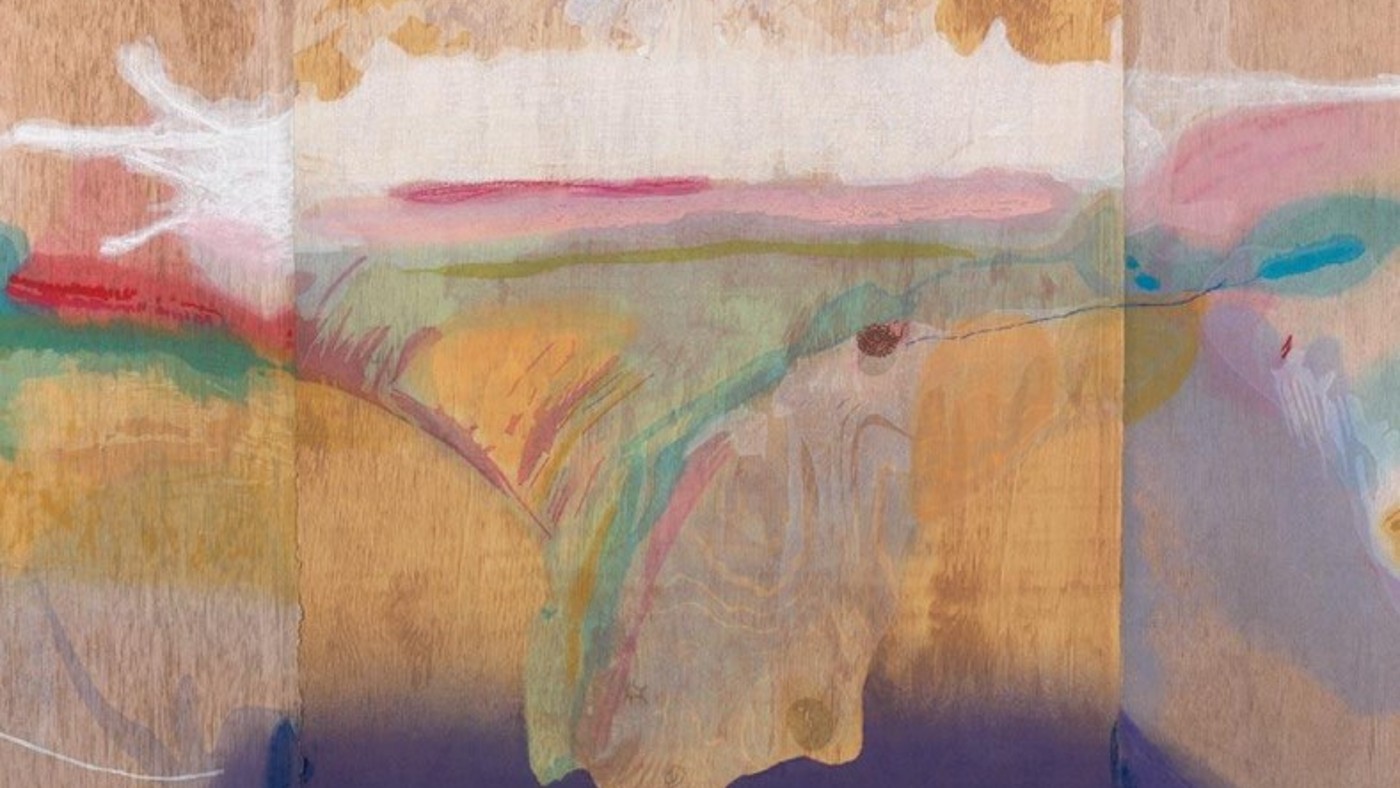Helen Frankenthaler: Radical Beaut – this may be ‘the show of the season’
What the critics are saying about this Dulwich Picture Gallery exhibition of 36 finished woodcut prints

A free daily email with the biggest news stories of the day – and the best features from TheWeek.com
You are now subscribed
Your newsletter sign-up was successful
Helen Frankenthaler (1928-2011) was “one of the great postwar abstract painters”, said Ben Luke in the London Evening Standard. In the 1950s, she was one of the pioneers of a style that came to be known as “colour field painting”.
It built on the achievements of the abstract expressionists; but where works by the likes of Jackson Pollock and Mark Rothko were totemic and grandiose, Frankenthaler’s were composed of “watery stains, organic arcs and glowing blocks of colour”.
Her paintings earned her great renown, yet in 1973, she started experimenting with a very different medium: woodcuts, a discipline that, unlike painting, involves a “rigid, laborious process and linear imagery”: prints must be transferred from heavy blocks of wood directly onto paper, requiring great physical effort and precision.
The Week
Escape your echo chamber. Get the facts behind the news, plus analysis from multiple perspectives.

Sign up for The Week's Free Newsletters
From our morning news briefing to a weekly Good News Newsletter, get the best of The Week delivered directly to your inbox.
From our morning news briefing to a weekly Good News Newsletter, get the best of The Week delivered directly to your inbox.
For an artist as instinctive and poetic as Frankenthaler, the switch seemed almost “perverse”. Yet as this exhibition of 36 finished woodcut prints (and various preparatory experiments) shows, it produced some “extraordinarily bold, innovative” images. Frankenthaler revolutionised a centuries-old tradition to create some sublime work. This show is profoundly “luminous and illuminating”.

For anyone interested in woodcutting, there is “much to delve into” here, said Waldemar Januszczak in The Sunday Times. A print called Essence Mulberry, for instance, is accompanied by half a dozen trial proofs that reveal much about Frankenthaler’s working methods. Yet for all the “crazy complexity” her practice entailed, the pictures themselves are underwhelming.
Her earliest woodcut, 1973’s East and Beyond, is a “blob of beige ringed with slivers of black, blue, red and green” that “delivers almost nothing in the way of a memorable image”. Freefall (1993) is over six feet high – “a big drench of blue framed with jagged black shapes”, made from 21 wood blocks. Pretty as they are, these works are “simply not worth the enormous communal effort that went into producing them”.
I disagree entirely, said Laura Cumming in The Observer. The show is a sequence of 36 visions of such “overwhelming beauty” that “the urge is to remain there all day. It is like being surrounded by some ever-changing song.” The prints are abstract, but evoke nature.
A free daily email with the biggest news stories of the day – and the best features from TheWeek.com
Best of all are the three versions of Madame Butterfly (2000) – a painting, a trial print and the final woodcut – which by turns evoke “the bright Sun dissolving into light”, a haze of “smoky air” and “an afterlife beyond the passions of this one”. Make no mistake: this may be “the show of the season”.
Dulwich Picture Gallery, London SE21 (020-8693 5254, dulwichpicturegallery.org.uk). Until 18 April
-
 The broken water companies failing England and Wales
The broken water companies failing England and WalesExplainer With rising bills, deteriorating river health and a lack of investment, regulators face an uphill battle to stabilise the industry
-
 A thrilling foodie city in northern Japan
A thrilling foodie city in northern JapanThe Week Recommends The food scene here is ‘unspoilt’ and ‘fun’
-
 Are AI bots conspiring against us?
Are AI bots conspiring against us?Talking Point Moltbook, the AI social network where humans are banned, may be the tip of the iceberg
-
 A thrilling foodie city in northern Japan
A thrilling foodie city in northern JapanThe Week Recommends The food scene here is ‘unspoilt’ and ‘fun’
-
 Tourangelle-style pork with prunes recipe
Tourangelle-style pork with prunes recipeThe Week Recommends This traditional, rustic dish is a French classic
-
 Samurai: a ‘blockbuster’ display of Japan’s legendary warriors
Samurai: a ‘blockbuster’ display of Japan’s legendary warriorsThe Week Recommends British Museum show offers a ‘scintillating journey’ through ‘a world of gore, power and artistic beauty’
-
 BMW iX3: a ‘revolution’ for the German car brand
BMW iX3: a ‘revolution’ for the German car brandThe Week Recommends The electric SUV promises a ‘great balance between ride comfort and driving fun’
-
 Arcadia: Tom Stoppard’s ‘masterpiece’ makes a ‘triumphant’ return
Arcadia: Tom Stoppard’s ‘masterpiece’ makes a ‘triumphant’ returnThe Week Recommends Carrie Cracknell’s revival at the Old Vic ‘grips like a thriller’
-
 My Father’s Shadow: a ‘magically nimble’ love letter to Lagos
My Father’s Shadow: a ‘magically nimble’ love letter to LagosThe Week Recommends Akinola Davies Jr’s touching and ‘tender’ tale of two brothers in 1990s Nigeria
-
 Send Help: Sam Raimi’s ‘compelling’ plane-crash survival thriller
Send Help: Sam Raimi’s ‘compelling’ plane-crash survival thrillerThe Week Recommends Rachel McAdams stars as an office worker who gets stranded on a desert island with her boss
-
 Book reviews: ‘Hated by All the Right People: Tucker Carlson and the Unraveling of the Conservative Mind’ and ‘Football’
Book reviews: ‘Hated by All the Right People: Tucker Carlson and the Unraveling of the Conservative Mind’ and ‘Football’Feature A right-wing pundit’s transformations and a closer look at one of America’s favorite sports